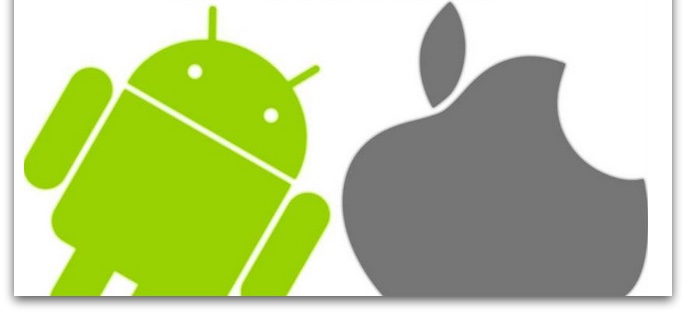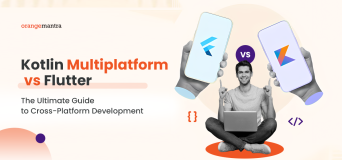There are two major platform of mobile app development one is android app development and another is iOS app development .
iOS platform is a more user friendly and intuitive platform to use and on the other hand the android platform sees a larger number of app downloads and users in the Indian market and rest of the world except the US.
As a user prospective which one is better for us its totally depends on platform you want to uses and what’s your requirements.
There are many main concern about that we will discuss major only Let us see which points you must consider for choosing the most appropriate platform for your business:
1.User Interface and Experience
- iOS: Known for its consistency and simplicity, iOS offers a sleek and uniform design across all devices. Apple’s strict control over the software and hardware results in smoother animations, a refined aesthetic, and fewer customizations, which some users find more intuitive.
- Android: Provides more customization options and flexibility, allowing users to personalize their experience with widgets, themes, and custom launchers. However, this can lead to a less uniform experience across different devices. For customization of android app consult with android app development company they deliver best answer for your query
2. App Store Quality
- iOS: The Apple App Store tends to have more curated and premium apps, and developers often release apps on iOS first. App quality control is stricter, which leads to fewer bugs but fewer free apps.
- Android: The Google Play Store has a broader variety of apps, including many free options. It’s easier for developers to publish apps, which increases the risk of low-quality apps but also encourages more innovation and variety.
3. Device Choices
- iOS: Only available on Apple devices, such as iPhones and iPads. This limitation ensures optimized performance but offers fewer options in terms of price and device styles.
- Android: Available on a wide range of devices from different manufacturers (Samsung, Google, OnePlus, etc.), offering users choices at various price points, sizes, and features.
4. Software Updates
- iOS: Apple provides consistent updates across all supported devices simultaneously, ensuring users get the latest features and security fixes without delay.
- Android: Updates can be delayed depending on the manufacturer and carrier, and not all devices receive updates at the same pace, which can result in some devices missing out on newer features.
5. Privacy and Security
- iOS: Apple places a strong emphasis on privacy and security, with features like app tracking transparency, encryption, and limited data sharing with third parties.
- Android: While Android has improved its security features, it is often seen as more vulnerable to malware and data breaches, especially due to the open nature of its ecosystem.
6. Customization vs. Simplicity
- iOS: Ideal for users who prefer a simple, consistent, and stable experience with minimal customization.
- Android: Better for those who want to customize their device to suit their specific needs and enjoy more freedom in terms of interface and functionality.
7. Price Consideration
- iOS: Generally, iPhones are considered premium devices with higher price points but excellent build quality and performance.
- Android: Offers a wide range of devices at different price points, from budget to premium, making it more accessible to different demographics.
8. Integration with Other Devices
- iOS: Seamless integration with Apple’s ecosystem (Mac, Apple Watch, iPad) provides a cohesive experience for users already invested in the Apple ecosystem.
- Android: While Android integrates well with Google services, the overall ecosystem is less unified compared to Apple’s, unless you use devices from the same manufacturer (like Google’s Pixel lineup). Regarding ios integration you can consult iOS app development company for smooth ideas & process
Conclusion
- iOS is generally preferred by users who value a simplified, secure, and consistent user experience with seamless integration across devices.
- Android is better suited for users who appreciate flexibility, customization, and a wide range of device choices at various price points.
Choosing the better platform depends on what matters most to the user: simplicity and premium experience (iOS) or flexibility and affordability (Android).
Source :Chatgpt























